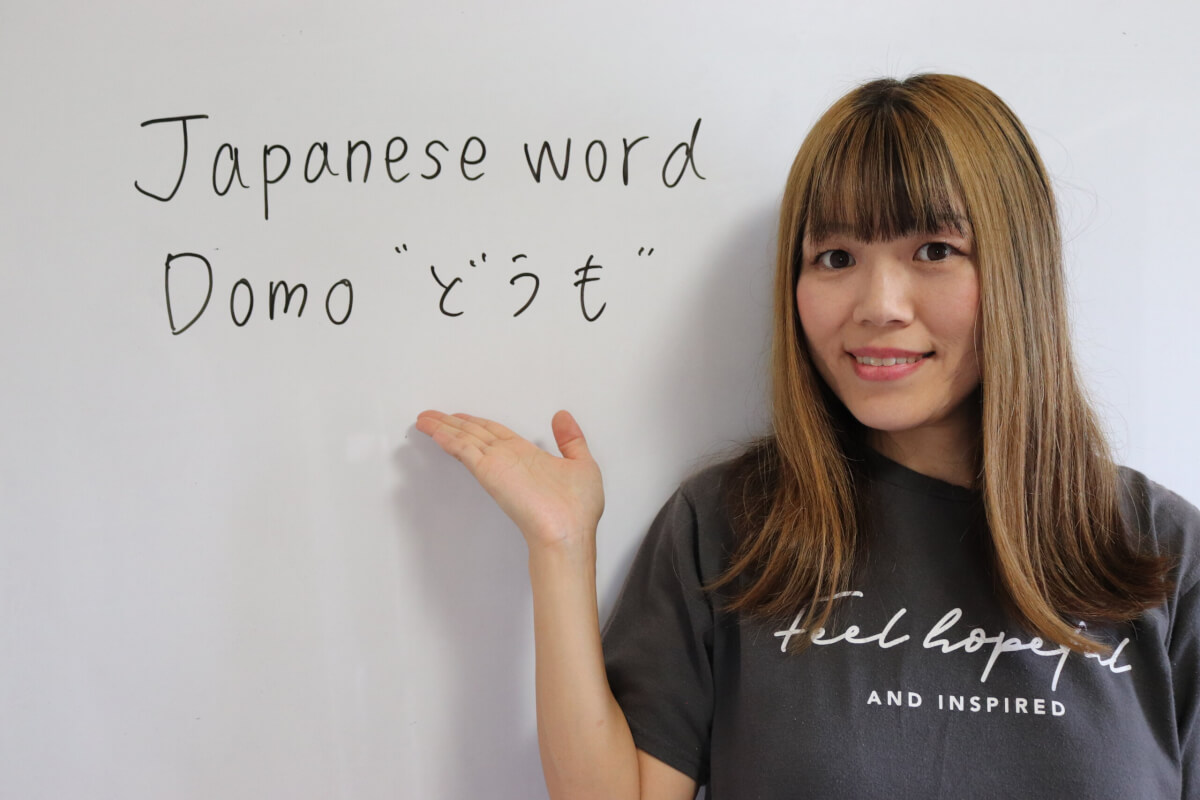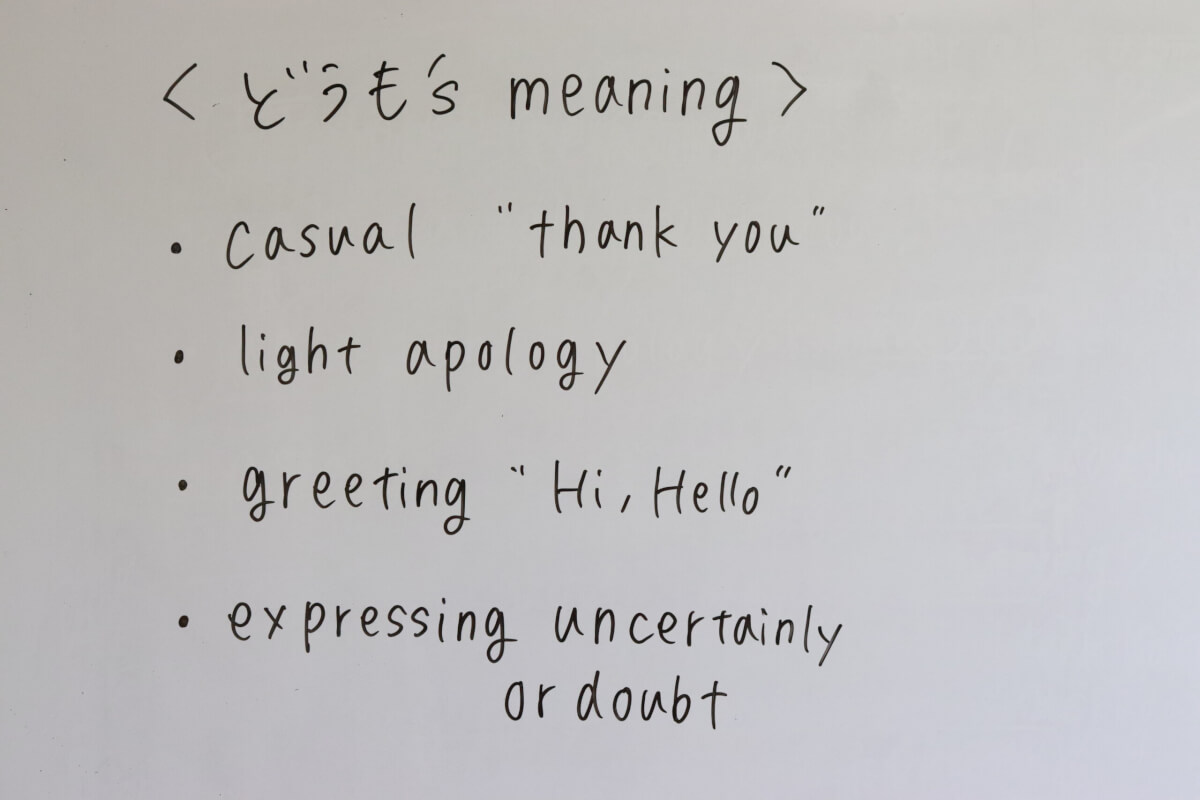- Release Date:
Japanese word Domo どうも

When learning Japanese, one of the most useful and flexible expressions you'll come across is "どうも /doumo; pronounced as dōmo/". There are various meanings of "どうも /doumo/" depending on the context. It is often used in anime and manga too, and my students often ask me what it means.
Let's explore the different ways "どうも /doumo/" is used in everyday Japanese conversation.
The meaning of "Domo"
There are the meanings of "どうも /doumo/". Let's see them one by one.

As a casual "Thank You"
In casual situations, "どうも /doumo/" is often used as a shortened form of "どうもありがとう /doumo arigatou/", which means "thank you very much." By itself, "どうも /doumo/" can still express gratitude, making it a quick and easy way to thank someone casually.
Example:
- 「どうも /doumo/!」 (Thanks!)
As a light apology
"どうも /doumo/" can also serve as a polite way to apologize. It's commonly paired with "すみません /sumimasen/" or "ごめんなさい /gomen nasai/" , meaning "I'm sorry." The usage here tends to be more casual and suitable for minor apologies, so Japanese people don't use it on business occasions.
Example:
- 「どうもすみません。/doumo sumimasen/」 (I'm sorry.)
As a greeting "Hi, Hello"
In everyday conversation, you might hear "どうも /doumo/" used as a friendly greeting. It's somewhat equivalent to saying "hi" or "hello" in English, often without needing to add "こんにちは /konnichiwa/", meaning "good day").
Example:
- 「どうも、こんにちは。/doumo, konnichiwa/」 (Hi, hello!)
Expressing uncertainty or doubt
Sometimes, "どうも /doumo/" is used when something feels off, but the speaker isn't exactly sure what it is. It can convey a sense of unease or suspicion, often appearing in more introspective moments.
Example:
- 「どうも変(へん)だな。/doumo hen dana/」 (Something feels strange.)
Should learners/travelers use Domo?
Words that travelers and learners are unsure whether to use include the following words:
- 「どうもありがとう(ございます) /doumo arigatou(gozaimasu)/」と「ありがとう(ございます) /arigatou(gozaimasu)」と「どうも /doumo/」
- 「どうもこんにちは /doumo konnichiwa/」と「こんにちは /konnichiwa/」と「どうも /doumo/」
- 「どうもすみません /doumo sumimasen/」と「すみません /sumimasen/」("どうも" by itself does not mean ‘I'm sorry’)
From my point of view as a native Japanese speaker, it seems a little more polite with “どうも /doumo/”. However, it is polite enough without it. "ありがとう(ございます) /arigatou(gozaimasu)/" "こんにちは /konnichiwa/" and "すみません /sumimasen/" are polite enough.
Please remember that you don't necessarily have to use “どうも /doumo/” to those phrases.
Men use Domo a little more often than women
Although “どうも /doumo/” is a very common word, I actually personally don't use it very often. My husband, however, uses it often. For example, he says “どうも /doumo/” to the store person, and he also uses it at work.
In my whole life in Japan, I think men use it more than women. However, there are women who also use it often, so it does not necessarily mean that women do not use it.
